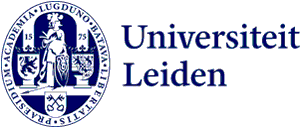
Academia in Motion: ‘Don’t be afraid to say what you can’t do’
Setting a good example by showing that it’s good to make choices. That it’s okay say ‘no’. And as a manager, using a range of tools for Recognition & Rewards. Bram Klievink, Scientific Director and Professor at the Institute of Public Administration, shares his ambitions for Academia in Motion.
‘For me, Academia in Motion means giving managers the tools to create a climate in which people with different talents can flourish and are valued, and in which there’s space for both individual and team achievements as well as for organisational and academic citizenship.’
This sentence is how Klievink describes his mission for Leiden University’s Academia in Motion programme, which aims to change the university’s culture.
Bram, let’s break down that sentence. Giving managers the tools to create a climate in which people with different talents flourish and are valued. What do you mean by that?
‘I want to make sure we don’t see the Recognition & Rewards part of Academia in Motion too narrowly, as something that’s only or mainly about career paths and promotions. That would be a missed opportunity because we should be giving managers across the organisation a much broader toolbox for recognising staff. Recognition doesn’t always have to be linked to a career step.’
'Everyone has their own value within a team, and together we keep the organisation running.'
What kind of tools are you thinking of?
‘For me, it’s essentially about recognising everyone's contribution and valuing the work within a particular role, and by doing so, contributing to the appreciation of that role. In terms of “conscious rewards”, you could show appreciation with an extra pay raise or a bonus, but it’s much broader than that. You also have to look at the roles your team members could take on. Are there any jobs or tasks that suit their talents and that they’d enjoy doing? You can recognise that talent by asking them, nominating them or creating time and space for them to take on that role. And it’s also about small things like expressing your appreciation, giving compliments or celebrating achievements with flowers or cake.’
And the second part of the sentence: what do you mean by organisational and academic citizenship?
‘We have a shared responsibility in the organisation, and this comes with a certain culture. It’s about seeing each other and giving colleagues room to make choices, asking people how they are, being present and approachable, saying hello when you pass someone in the hallway and thinking about how your knowledge and strengths can contribute. Everyone has their own value within a team, and together we keep the organisation running. Some do more research, others excel at teaching – it’s about the collective.
‘It’s important that you don’t just do things that benefit you or your own career, but that you also focus on the people who keep the organisation going – the ones who do the service jobs and fill the gaps. You know the ones: colleagues who always put the interests of the group above their own, who are always willing to take over a lecture or review a document. That’s an essential part of your work as an academic in the context of an organisation like ours. And what you recognise and reward also influences people’s behaviour.’
What does this ask of staff and managers?
‘For managers, it means accepting that people make choices and that they need to feel and safe to do so – to say no without that being seen as negative or uncollegial. As a manager, you can help them make those choices. For staff, it’s about finding a way to combine the different parts of your job while keeping it manageable, and that means being able to make choices.’
'I really want to organise a “no-session” in my team.'
How do you apply this yourself as a manager?
‘I try to actively use that broad toolbox I mentioned and encourage other managers to do the same. For example, in talent review and GROW cycles. So not reflexively viewing people only in terms of career steps, but looking at other aspects: someone’s leaving a committee – who would suit that role? Do we have a clear picture of roles that are less visible but still important to the organisation? Do we value these enough? Are there development steps that someone is wants to take, separate from their career, that we can support? At the same time, we still need to take proper steps on the career side and to articulate more clearly what these steps involve, what the process looks like and what the mutual expectations are.
With my direct colleagues, I try to show through my own behaviour that you can’t do everything, nor should you have to. That it’s not bad to make choices and that your work-life balance really matters.’
If you look at yourself, what could you improve?
‘Our job is so broad, and so many things are interesting and relevant that I often find it hard to say no. I really want to organise a “no-session” in my team. We have so many sessions about what we all can and should do, and then you get a to-do list that’s too long to carry out. You have to look at what you as a team don’t do, to make choices. What are we good at and which tasks do and don’t we take on? Discussing that’s on my to-do list!’
Text: Margriet van der Zee
How we’re setting Academia in Motion at Leiden University
This interview is part of a series highlighting the various actions colleagues are taking to support culture change at Leiden University. Together we are becoming an open knowledge community, closely connected to society, that recognises and rewards everyone’s contribution to our strategic goals. Curious? Visit the Academia in Motion website.
